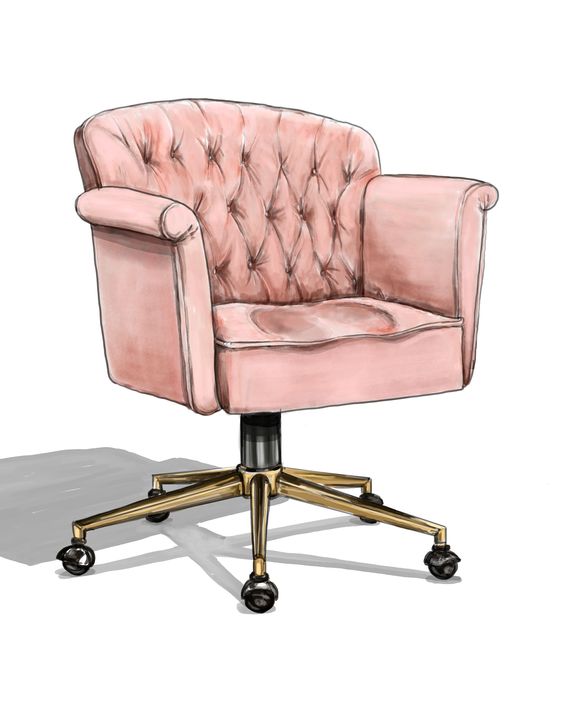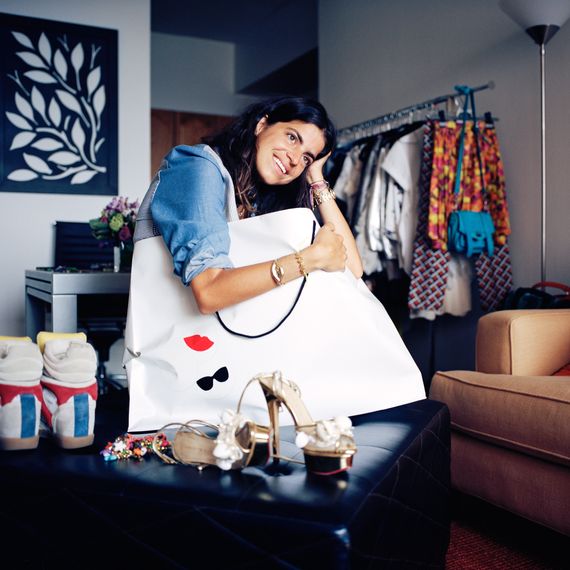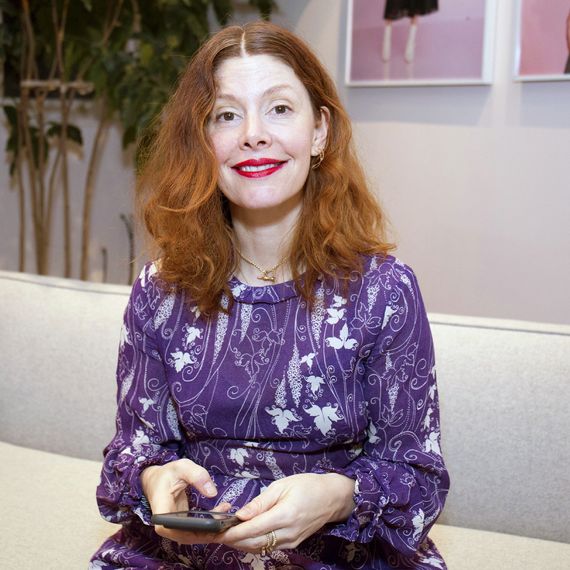
Bah already. The Boss has always been an oddity while necessary in order to facilitate decision making. Often as not it is the owner whose failures become very personal. The idea of the free agent CEO is a recent phenom though. That person lives and dies on reputation.
The advent of many women into the executive has produced plenty of female bosses. This has been a good experience generally but still with the same old problem caused by real power.
As we see there are remedies and they are applied. That has to be good enough
The Girlboss Is Dead. Long Live the Girlboss.
The trope was infantilizing and sexist. For many women, it was also essential.
#GIRLPOWER
AUG. 31, 2021
Illustration: Ellaphant in the Room
In 2020, a reckoning began to take place in the world of women-led start-ups. What started as a series of stories alleging toxic workplaces and racist behavior turned into a wave of high-profile exoduses. Steph Korey, co-founder and co-CEO of luggage company Away, stepped down, as did Christene Barberich, the editor-in-chief and co-founder of Refinery29, and Leandra Medine Cohen, the founder of the fashion blog Man Repeller. Audrey Gelman, CEO and co-founder of the Wing, and Yael Aflalo, CEO and founder of the clothing brand Reformation, also resigned.
The subjects of these investigations represented a particular archetype: wealthy, college-educated white women. They weren’t just executives but often the faces of their brands, commanding large social followings. The companies they helmed were also uncannily similar. They peddled different products — from suitcases to jeans to co-working spaces — but they all promised business practices rooted in inclusion and posited their leadership as evidence of a shattering glass ceiling. These women were, in other words, girlbosses. Coined by entrepreneur and Nasty Gal founder Sophia Amoruso in 2014, the term “girlboss” became synonymous with “hustle culture,” with a feminism-lite twist: the optimistic, almost religious desire to get ahead at work and in life. #Girlboss is the millennial-pink version of Helen Gurley Brown’s Having It All, the living embodiment of Facebook COO Sheryl Sandberg’s order to lean in. The project was, on its face, necessary: The game is rigged against women who are, by all measures, as capable as men. But in mere months, the #Girlboss went from being an empowering idea to shorthand for a type of fake-woke feminism. (Tellingly, Nasty Gal also faced allegations of workplace discrimination.)
are u coming?
Late-night dispatches from a city ready to party.
Much of the critique of the girlboss trope was legitimate, perhaps inevitable. It was infantilizing while also pushing a near-impossible template of success. And there was always something facile about the notion that a female leader could, on her own, solve the problems inherent to capitalism or start-up culture. But certain aspects of the backlash have felt misdirected. Women can certainly be bad leaders, yet they’re also held to standards that their male counterparts never are, and often the very brand of bombastic leadership that is rewarded in men is punished in women. (Take, for example, Elon Musk and Mark Zuckerberg, who have claimed their work makes the world a better place though each has invited way more, and way graver, controversies than any woman has — notably around labor issues and having a hand in the weakening of American democracy.) Focusing solely on these women’s professional disintegrations failed to address the forces that produced them: the investor who suggested they tap into the women’s market and dangled a check, the imperative to grow at the expense of everything else.




Clockwise from top left: Man Repeller fashion blogger Leandra Medine Cohen. Photo: Kevin Trageser/ReduxNasty Gal founder-CEO Sophia Amoruso. Photo: Gary Friedman/Los Angeles Times via Getty ImagesRefinery29 co-founder Christene Barberich. Photo: Santiago Felipe/Getty ImagesAway co-founder Steph Korey. Photo: Carmen Chan
When our admiration for girlbosses started to unravel, I felt some relief. I, too, was ready to do away with the pressure to be simultaneously successful and well coiffed, to feel driven by purpose every moment of my life. As I watched the takedowns come one after another on social media, though, I couldn’t help but notice that one side of the girlboss narrative was being ignored. As the former executive editor at Teen Vogue, I knew that hustle culture was the water in which many young women, especially women of color, swam. They showed up to our events with their résumés in before even graduating from college. Aspiring entrepreneurs emailed me regularly, voraciously networking in an effort to start their businesses. I worked with women who earnestly posted serif-font graphics on social media about how “it’s not luck; it’s hard work” and Instagram Stories about the importance of hustle. They had unironically subscribed to the girlboss ethos. These were women who got up at the crack of dawn to go to the gym, who worked after-hours on their side projects, who were motivated by something deeper than the byline or the cover of a magazine. For them, the girlboss provided a map showing the way out of the conditions they were living in.I knew that hustle culture was the water in which many young women, especially women of color, swam.
Cristina Flores is the director of scheduling for the U.S. Department of Education and someone I worked with seven years ago at the National Women’s Business Council. She tells me that, despite the concept’s flaws, she still identifies as a girlboss. She attributes that partially to her parents, who immigrated to the U.S. from Mexico to build a better life for her and her siblings. When she left the working-class South Texas border community where she was raised, she felt as though she had to fight twice as hard for every opportunity. “I see it as an empowering term: I’m a girlboss, I got this, nothing’s going to stand in my way.”
Perhaps one reason it was so easy to dismiss the girlboss archetype was the idea that there is something crass, unsophisticated, even “common” about wearing your ambition on your sleeve. “I’m not saying that it’s good to simp for these elite female professional-success people, but there are so many women who just want to do better and move up,” says Ashley Louise, the co-founder and CEO of Ladies Get Paid, an organization that helps women with professional advancement and financial literacy, including how to ask for a raise. “The anti-girlboss thing feels really elitist to me.” Flores echoes this idea: “Who gets to claim [girlboss], because don’t we all get to claim it? Maybe I was using it this whole time, but you just didn’t care.”
Flores’s and Louise’s words add to the chorus of women I’ve worked with and met over the years — women who saw ambition and entrepreneurship as a way to change their material realities. Despite its flaws, the spirit of the #Girlboss — once stripped of the too-cute branding and the Instagram-follower counts and untenable investment dollars — did, for a moment, provide a template for young women as they move forward in their careers. And many of these young women, especially the less privileged ones, needed to believe they could get ahead in order to do so.

The Wing co-founder Audrey Gelman. Photo: Robyn Twomey/Redux
These women’s ambitions have not gone away. And as we enter the post-girlboss era, some are struggling to figure out how to frame or perform that ambition now. For women, navigating the workplace has always been about figuring out which tropes to avoid — we quickly learn not to be the doormat or the shrew, the secretary or the nag — and it seemed as though the death of the girlboss had set another trap. To present as too ambitious could mean running the risk of appearing too tacky, too earnest, or too obvious, or of making yourself vulnerable to public shaming or criticism. (“I hope no one is ever interviewed about my management,” a former co-worker said to me in the wake of the CEO resignations.) Today, some women entrepreneurs are rethinking how fast or big they want their businesses to grow. Noël Duan, an entrepreneur and founding member of the Wing, says watching the public reckonings has made her reconsider whether she wants to have a large profile at all. These pressures quickly start to appear gendered — why should women-led enterprises grow at a slower speed than businesses led by men? Why should only women fear being the face of their companies?
For some women, the girlboss backlash prompted them to add a caveat when they talked about their own ambition. In late 2020, in the thick of the girlboss backlash, Ladies Get Paid was getting ready to publish its book. “We wanted to get ahead of any girlboss backlash. We felt we had to defend what we do,” says Louise. The founders of the group decided to strip the book of any overtly activist language. In an introductory note, the other founder of LGP, Claire Wasserman, writes, “There are also those who call this corporate feminism, and say that it is performative at best and perpetuating systemic inequalities at worst. I hear you.” She goes on to explain that “helping women move up in their companies and make more money (which men have done since the beginning of time) is, on its face, not a bad thing.” But, she admits, the strategies in the book alone won’t end “entrenched sexism and discrimination” in the workplace.
White-collar workers like myself are on the precipice of reentering the physical workplace, and as we do, many of us are rethinking ambition and where it has gotten us, how much of it we require and how much we really need to work at all. For young women today, having it all means something different; it means getting ahead but doing so without sacrificing what makes their lives enjoyable. But even without the girlboss archetype to point to, we haven’t stopped being ambitious, and we haven’t stopped living in a system that doesn’t serve us. We still have to pay rent and take care of our families. We still want to do great things. Maybe soon we’ll find a better model for women to succeed. But whatever that looks like, it will — at least in part — owe something to the girlboss.
No comments:
Post a Comment